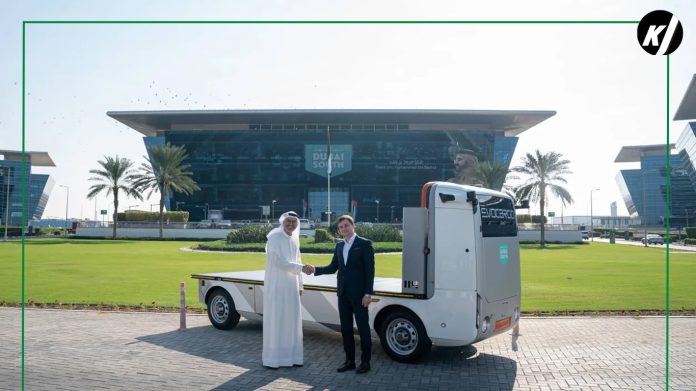It emerged on Wednesday that a Dubai-based firm has accomplished the first test for the UAE’s initial self-driving trucks. Managing director of Evocargo, Patricia De Witt said that the trials “were conducted on a specific track in a contained environment” of Dubai South Logistics District.
Evocargo N1 is the new model of unmanned electric truck that travels along a specific track and involves interaction with other participants of road traffic, like automobiles, trucks, and pedestrians. They said that the tests assessed Evocargo N1’s object detection, its ability to avoid accidents, conflicts with moving objects, and perform emergency stops.
The functionality of the Autopilot system of the truck was also tested in all kinds of operations such as parking, reverse parking, turning, and reverse turning. The other aspects also exercised include route management, remote monitoring, and control.
Evocargo, a logistics service provider that develops and provides electric autonomous transportation platforms, noted: “No failure or potentially hazardous incident was indicated by any of the participants throughout the series of tests.”
The trial of the driverless trucks was first announced in December 2022, to support the emirate’s vision of having 25 percent of total transport in Dubai autonomous by 2030.
The lifting capacity of Evocargo N1 is 2 tons and can transport up to six Euro pallets with a speed of 25 mph for 200 km. It takes 40 minutes to six hours to charge a vehicle fully to cater for a day’s operations depending on the outlet.
The security system includes 4 levels, for example, the computer vision of the territory, which surrounds a car, an automatic diagnostics system, a remote-stop system, and the standby pneumatic braking system.
Earlier this month, Evocargo stated that “autopilot systems lead to higher effectiveness of transportation of cargo while at the same time decreasing the time the trucks are out of operation…robotization, usage of electrical energy and hydrogen fuel cells instead of fuel are cost-effective”.

